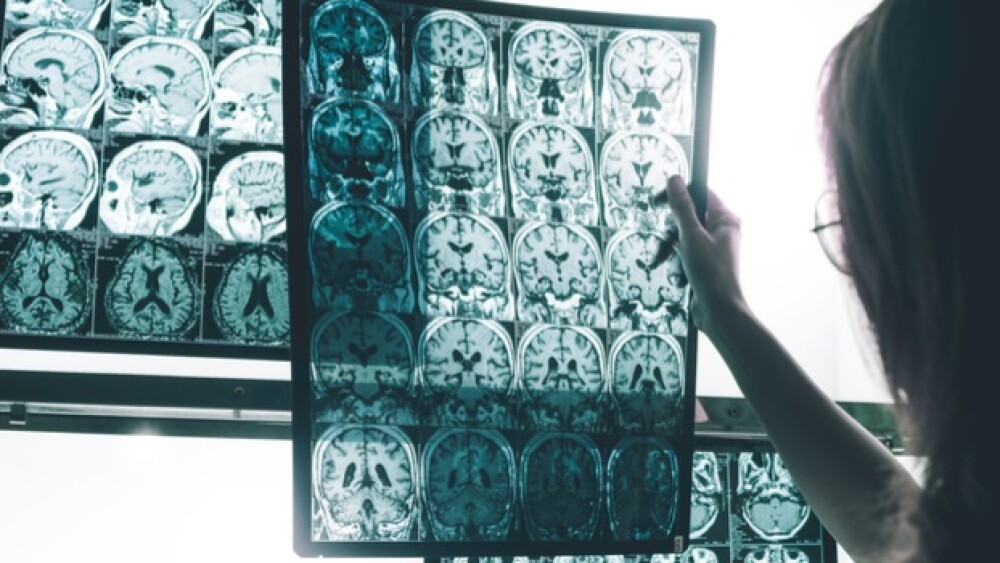Although the biopharma industry is churning out failure after failure of Alzheimer’s drugs, the start of the Alzheimer’s Association International Conference (AAIC) being held in Chicago this week is being met with optimism.
Although the biopharma industry is churning out failure after failure of Alzheimer’s drugs, the start of the Alzheimer’s Association International Conference (AAIC) being held in Chicago this week is being met with optimism.
UsAgainstAlzheimer’s, a nonprofit committed to halting Alzheimer’s by 2020, released a report yesterday pointing out that the number of Alzheimer’s drugs making it to Phase II and III clinical trials is an encouraging sign. “The topline is the numbers,” said the organization’s acting president, Drew Holzapfel, to CNBC. “Almost 100 drugs are in the final stages of drug development. … Despite so much national news about failures this year.”
And USA Today published a similarly upbeat article on Friday June 20. In that article, Stephen Salloway, director of the Memory and Aging Program at Butler Hospital in Rhode Island and a professor of neurology at the Alpert Medical School of Brown University, was quoted as saying, “There have been plenty of disappointments, and sadly, I’m an expert in those disappointments.” But “I’m quite bullish and think we’re making significant progress.”
According to UsAgainst Alzheimer’s and an affiliate made up of top scientists in the field, ResearchersAgainstAlzheimer’s, the number of drugs in Phase II clinical trials has grown 17 percent over the last year, from 58 to 68 drugs. They predict that eight of those will make it to the market over the next five years.
There are currently about 25 Alzheimer’s drugs in Phase III testing, and it’s worth tempering the optimism by noting that most Alzheimer’s failures occur in Phase III, often because the positive effects of the drugs seen in smaller groups in Phase II don’t pan out in Phase III. And many drugs recently have shown efficacy in decreasing or slowing the accumulation of beta-amyloid in Alzheimer’s patients, but haven’t shown improvement in cognition and memory. This has thrown the entire amyloid theory—that it is the accumulation of beta-amyloid in the brain that is the primary cause of Alzheimer’s—into doubt.
And there are many reasons for the gloom and doom. A report from Jeff Cummings, director of the Cleveland Clinic Lou Ruvo Center for Brain Health, and a founding member of ResearchersAgainstAlzheimer’s, noted that the failure rate for Alzheimer’s drug is about 99.6 percent. In 2017, there were more than 100 Phase II and Phase III trials, but it’s been 14 years since the last drug was approved for the disease, and it and the few others approved for the disease aren’t really very effective drugs. They only treat symptoms for a short period of time and don’t affect the causes of the disease.
Holzapfel tells CNBC, “Often times we talk about trials as failed trials. They’re not failed trials, they’re advancing our knowledge of the science. We are learning from past trials and learning how to attack the disease.”
That’s a similar argument to Thomas Edison’s claim to have not failed in his attempts to make a light built, but he eliminated 10,000 wrong ways. It’s a good way of thinking, even if it doesn’t really help the millions of people with the disease now.
The AAIC meeting began yesterday with two symposiums about “Innovative Approaches in Epidemiology,” and “Genetic and Biological Validation of Alzheimer’s GAS Genes and their Contribution to Disease.”
Today’s talks include “Multidomain Intervention to Prevent Cognitive Impairment and Dementia” by Miia Kivipelto from the Karolinska Institute in Sweden, and “The Aging Brain and the Risk for Alzheimer’s Disease” by Denise Park, The University of Texas, Dallas, and numerous poster presentations and smaller presentations and seminars.
In another show of optimism, the annual Brain Prize, which awards 1 million euros each year to researchers focused on amyloid, said they too believe there will be a successful drug within five years and that within a decade Alzheimer’s will disappear as a major societal problem. Their argument, which many researchers seem to believe, is that the drugs that target beta-amyloid so far have been tested on patients later on in the disease, after much of the damage has been done. This is why many companies are testing their drugs on earlier and earlier-stage Alzheimer’s patients. For that to be affective, however, more and better clinical diagnostic tests that can accurately predict the disease will be necessary.





